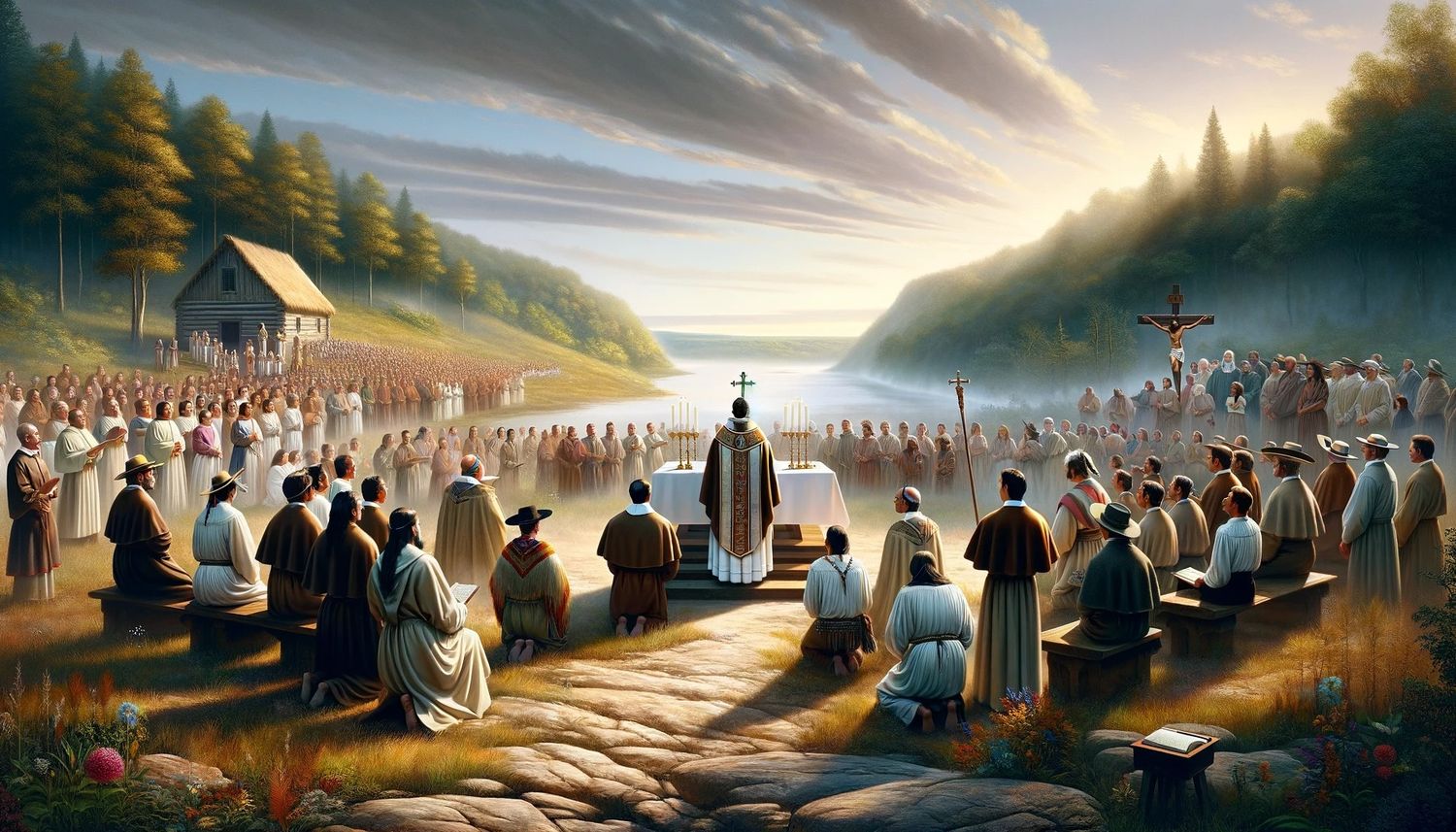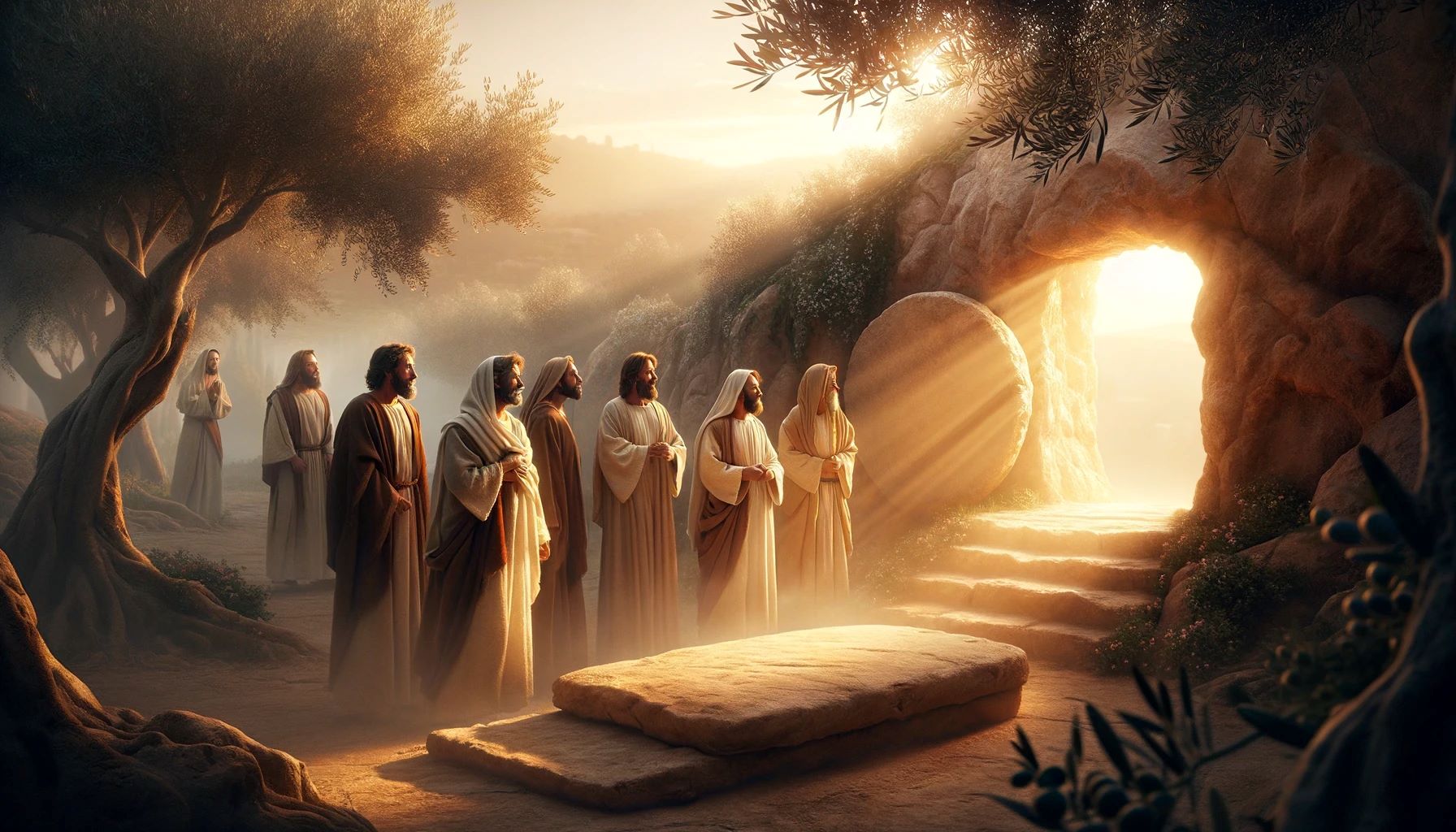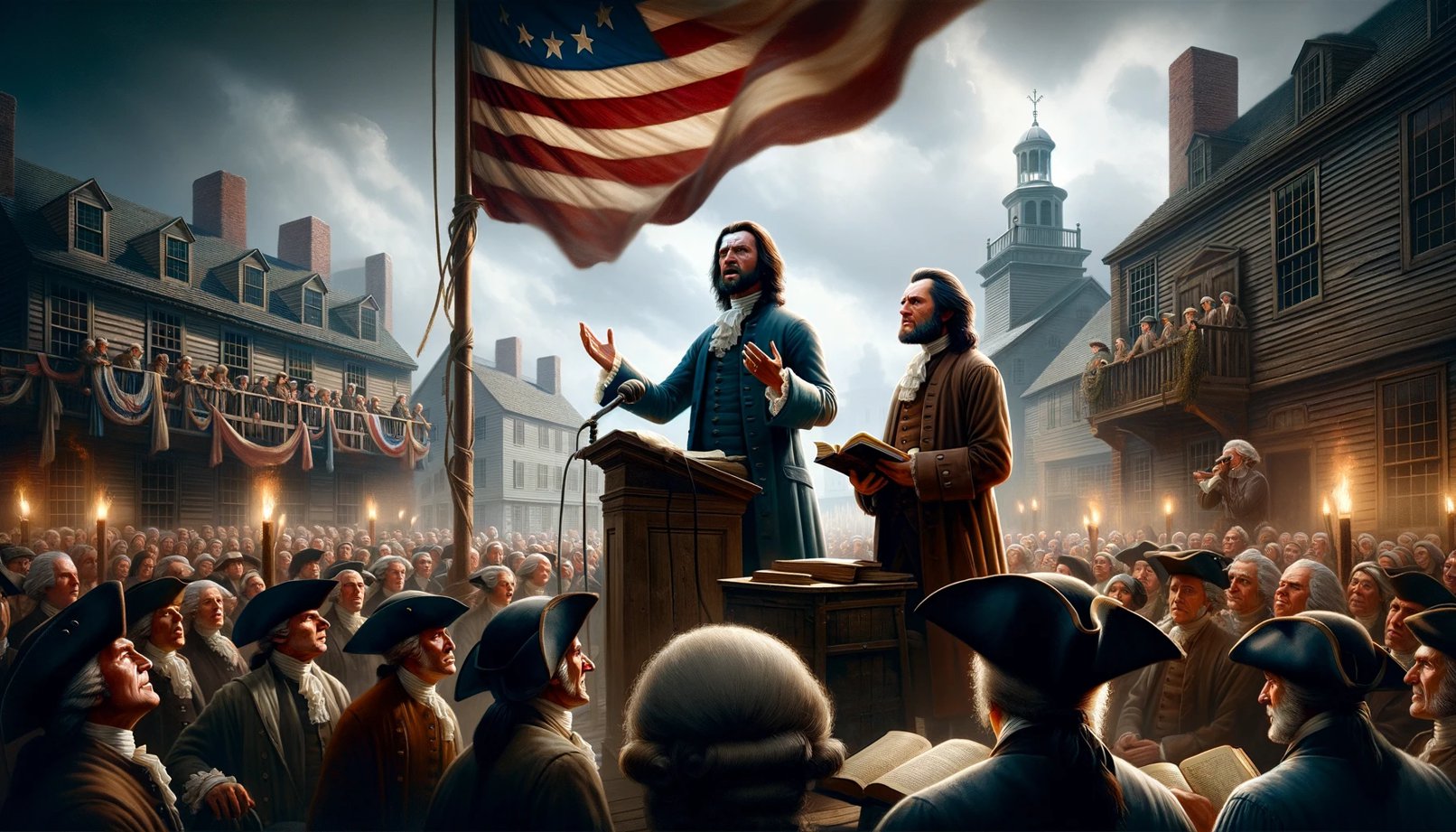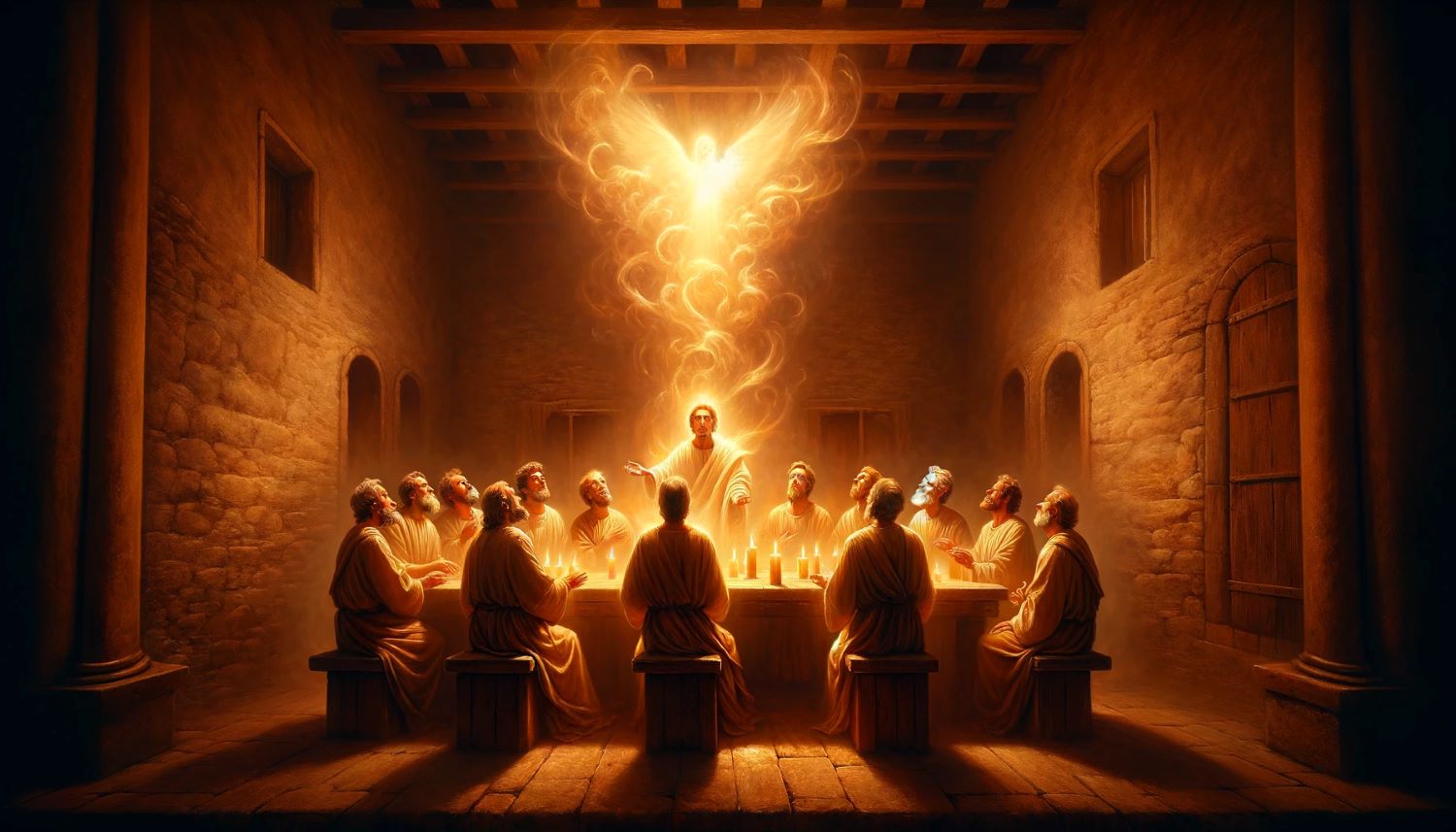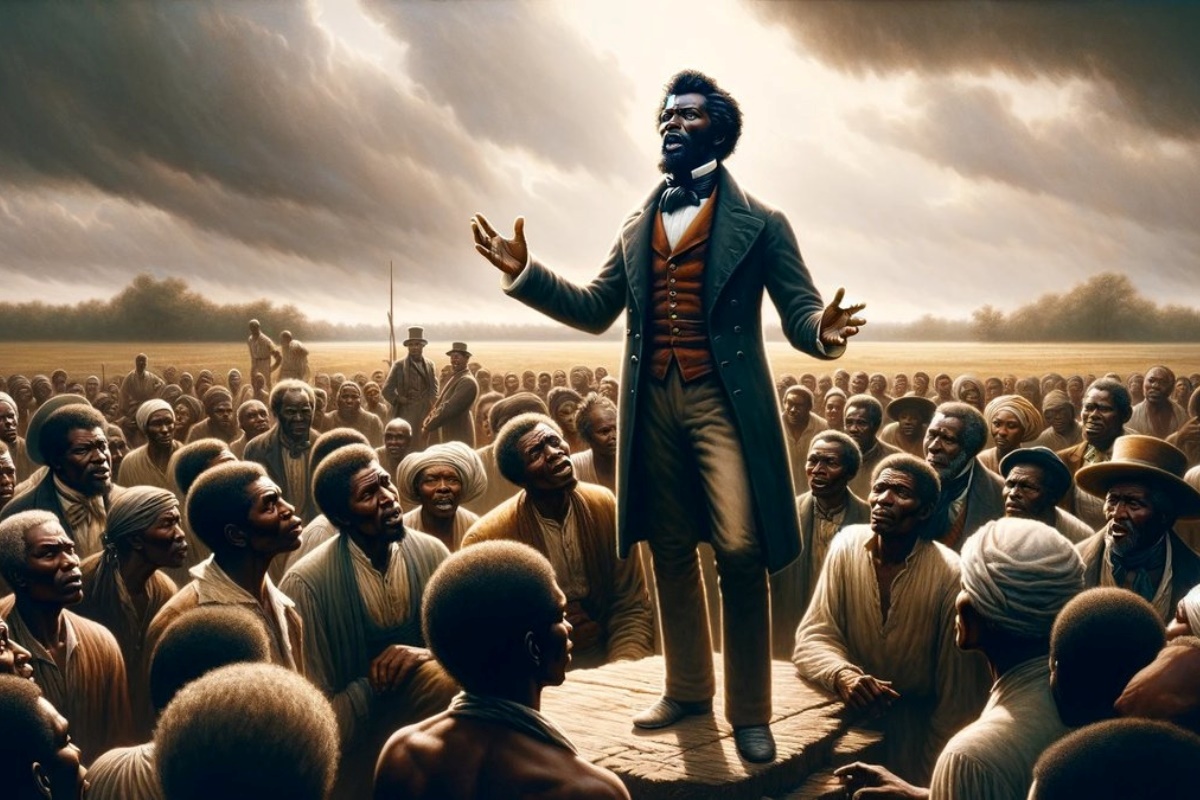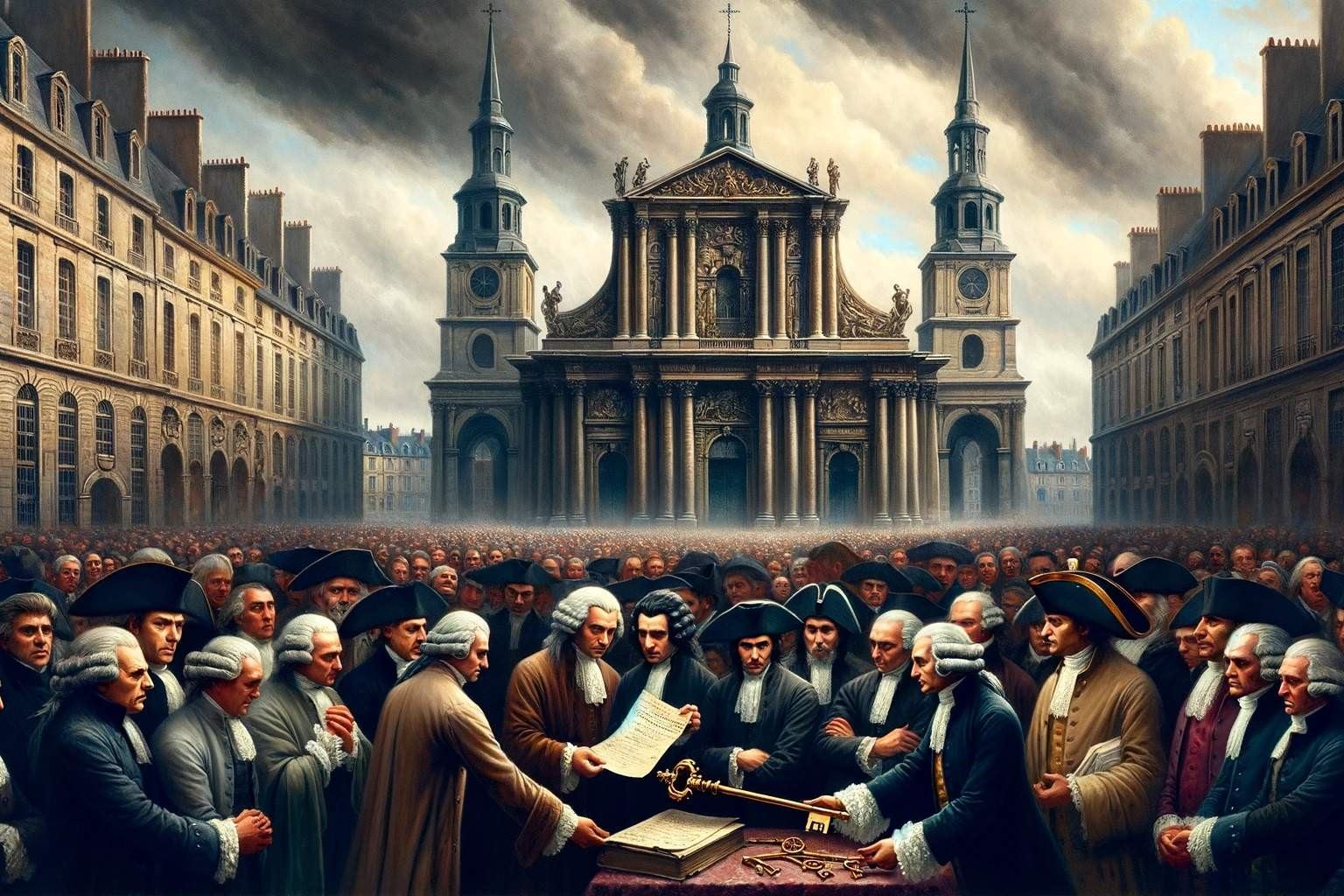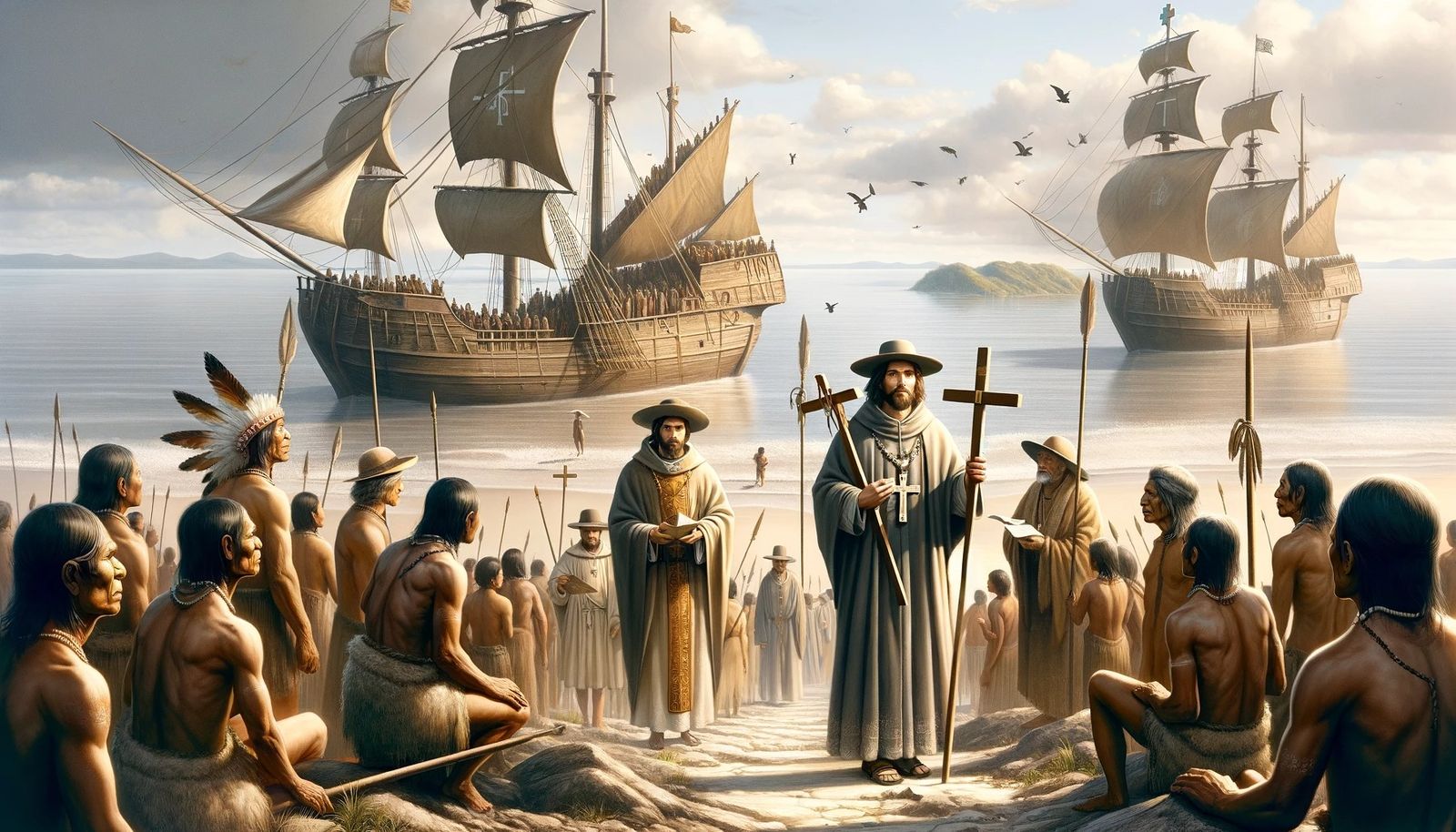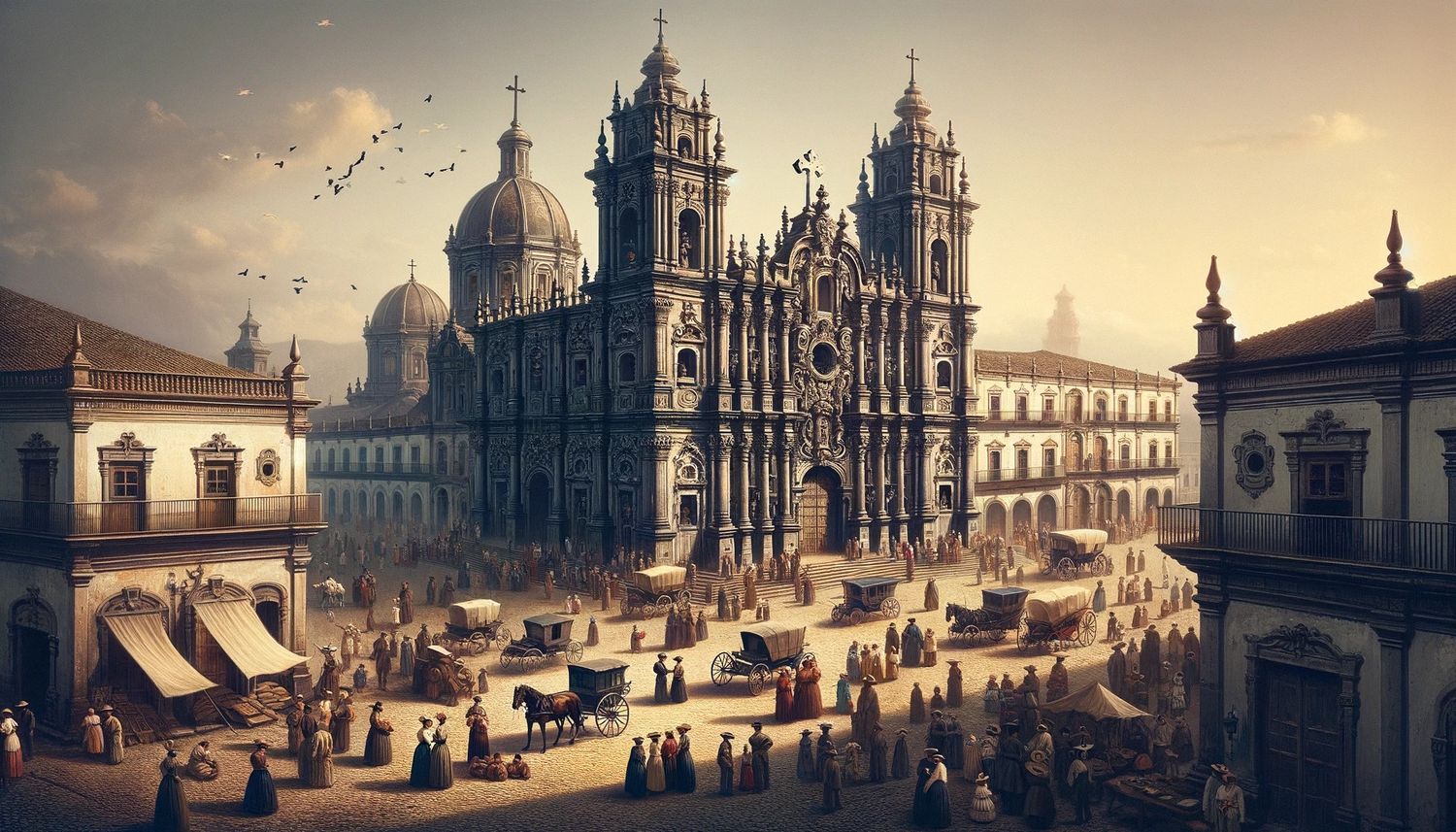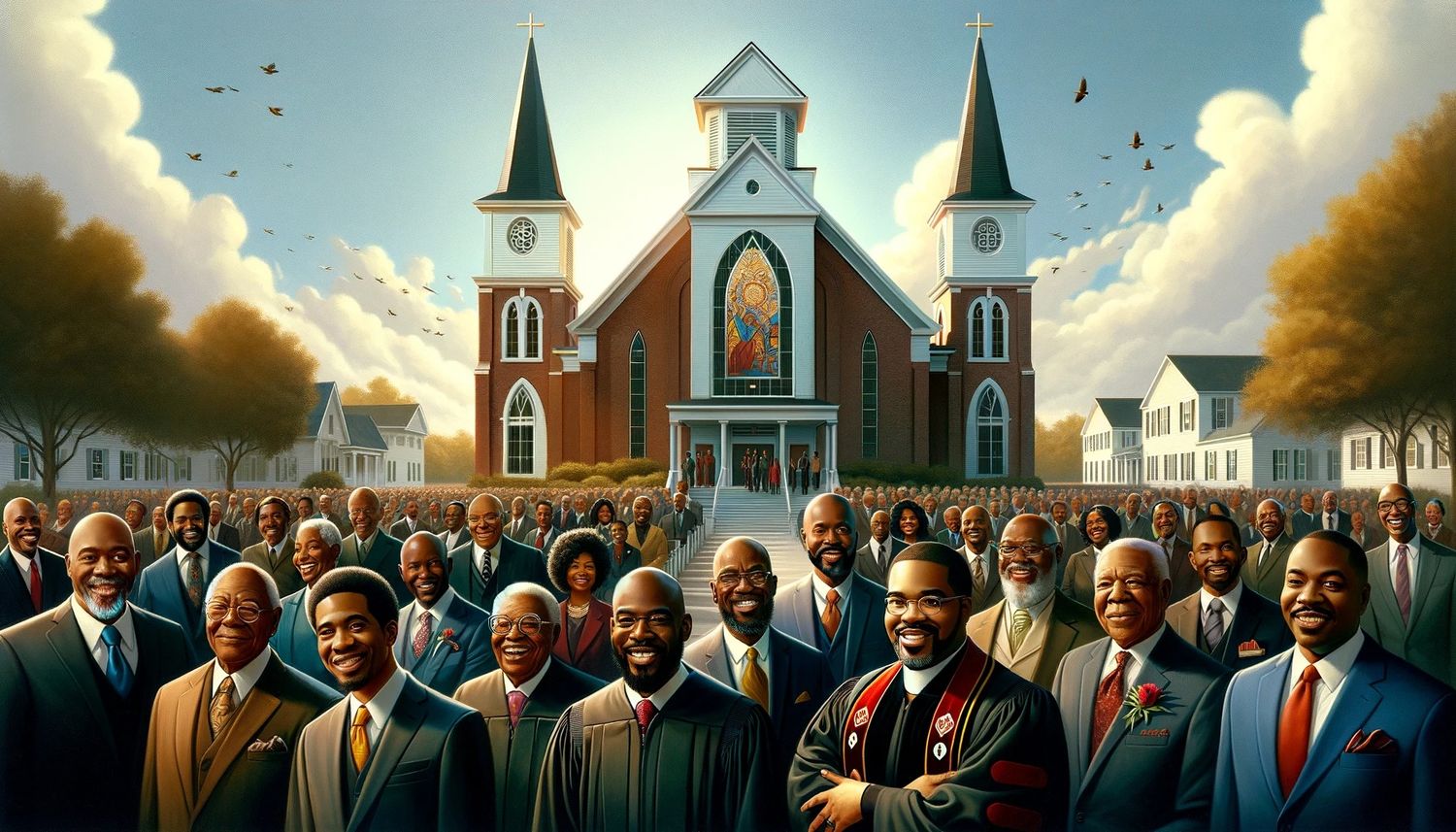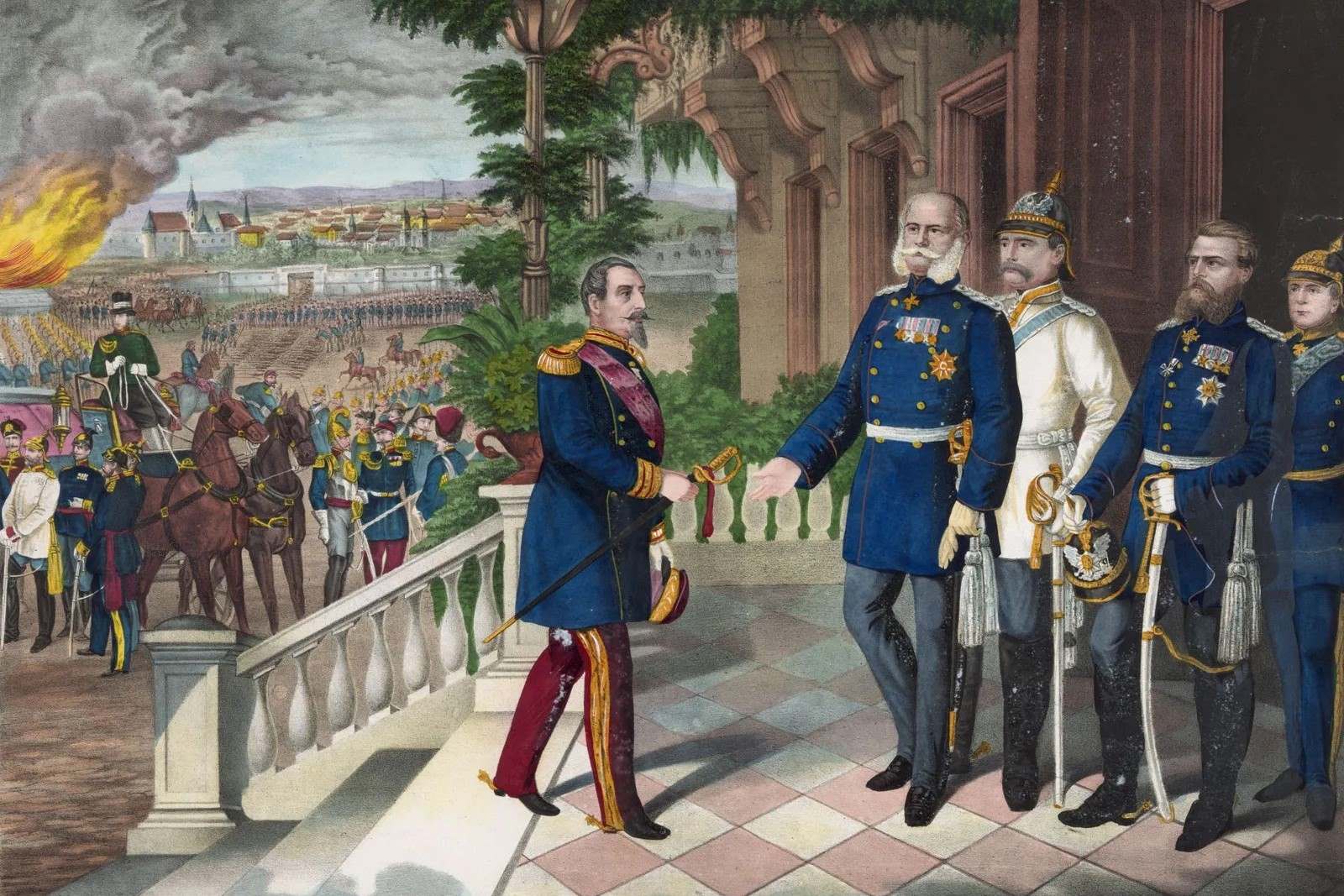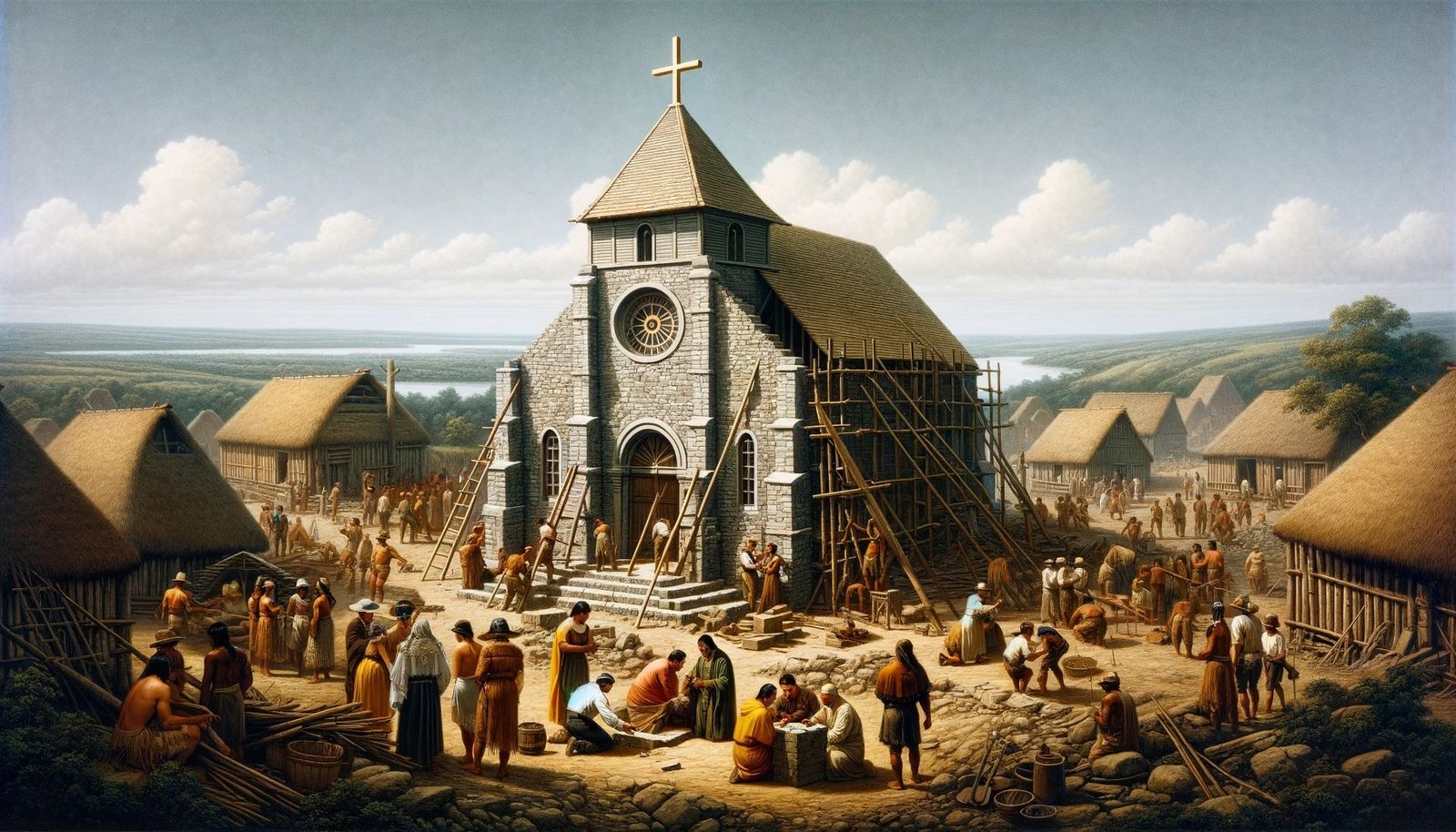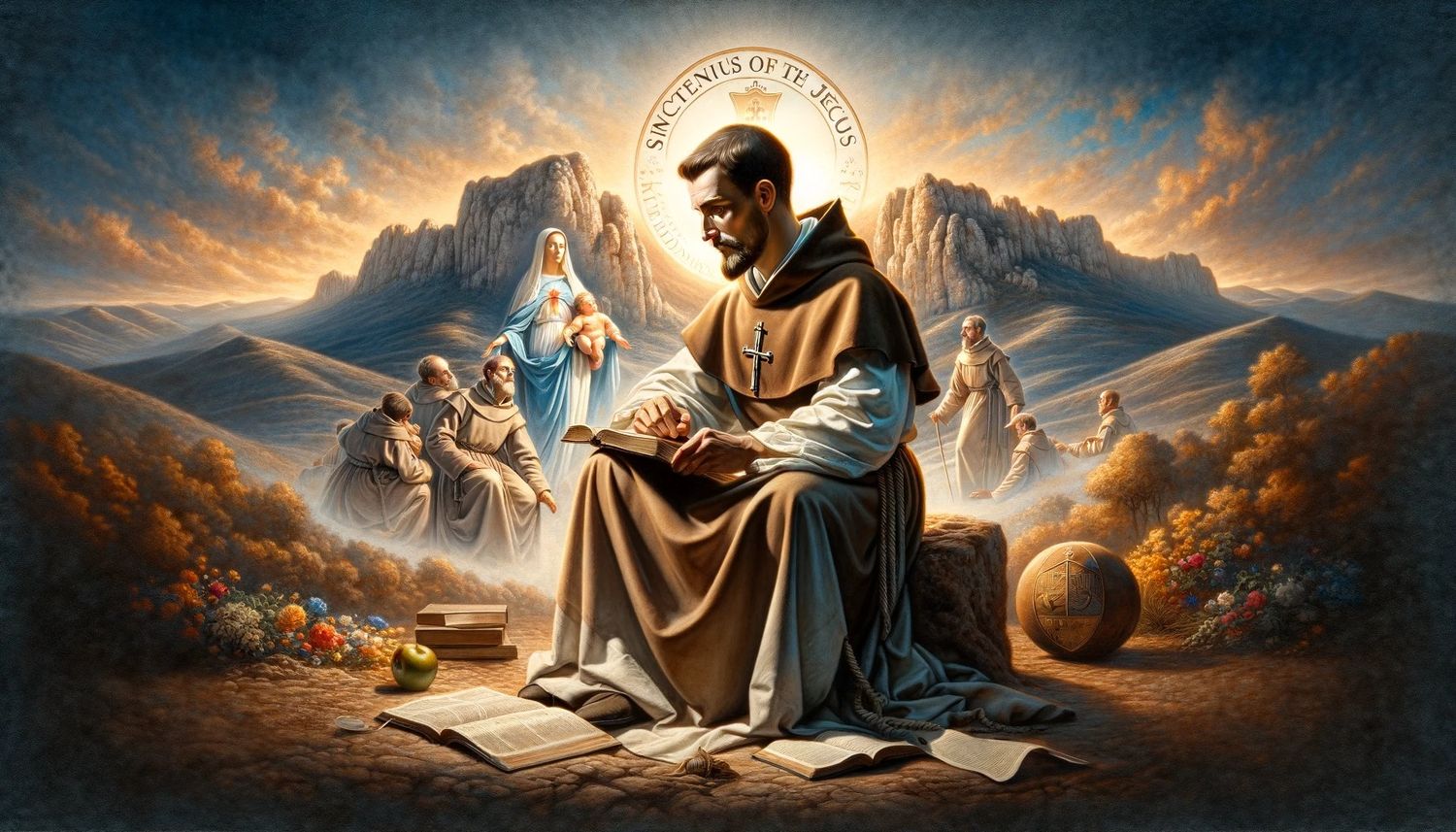Home>Theology and Spirituality>How Did The War For Independence Affect Anti-Catholicism In America?
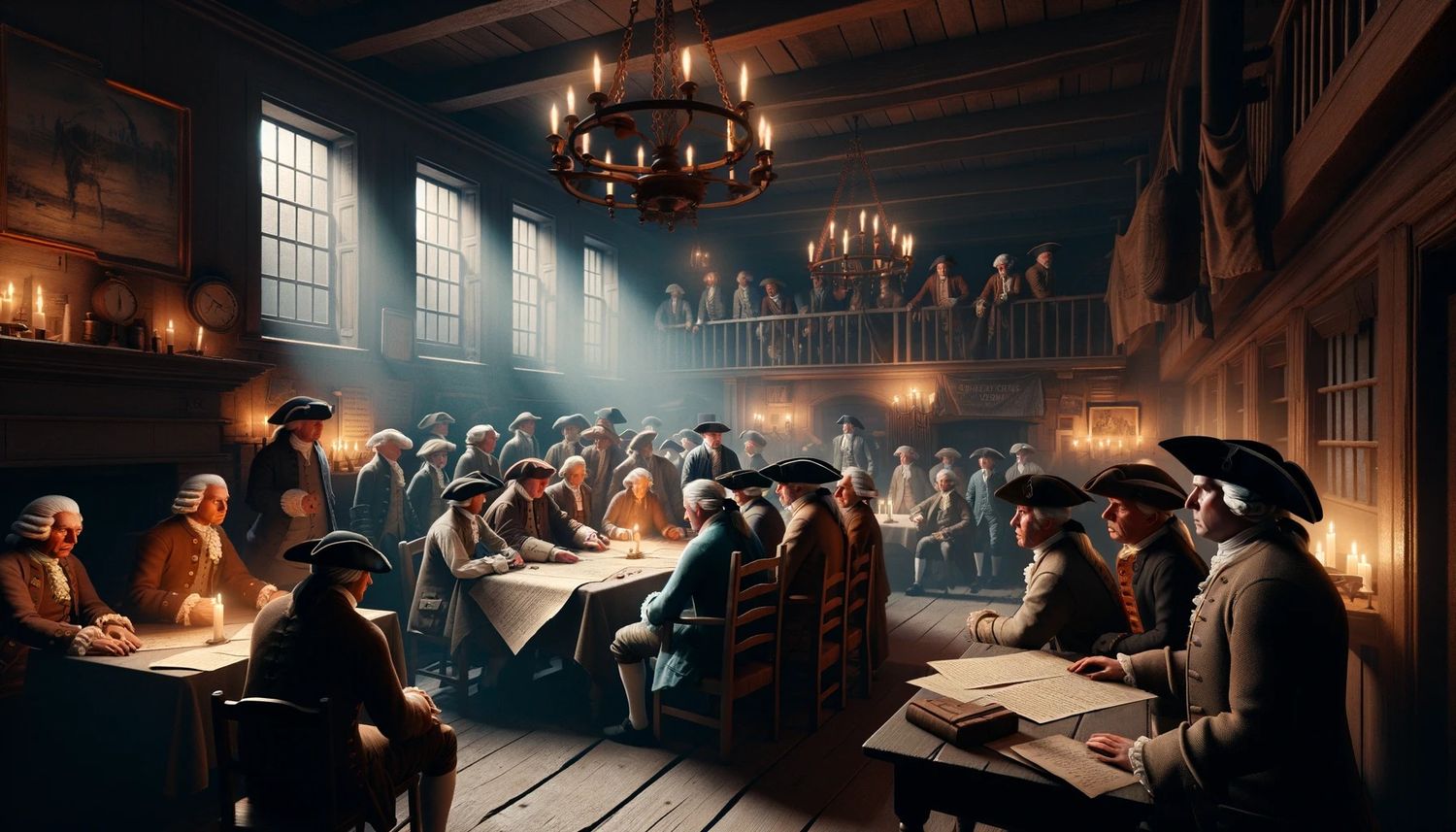

Theology and Spirituality
How Did The War For Independence Affect Anti-Catholicism In America?
Published: February 16, 2024
Peter Smith, Editorial Director at Christian.net, combines deep insights into faith, politics, and culture to lead content creation that resonates widely. Awarded for his contributions to religious discourse, he previously headed a major organization for religious communicators, enhancing dialogue on faith's societal impacts.
Discover the impact of the War for Independence on anti-Catholicism in America and its implications for theology and spirituality. Explore the historical context and its lasting effects.
(Many of the links in this article redirect to a specific reviewed product. Your purchase of these products through affiliate links helps to generate commission for Christian.net, at no extra cost. Learn more)
Table of Contents
Introduction
The War for Independence, also known as the American Revolutionary War, was a pivotal moment in the history of the United States. It marked the country's emergence as an independent nation, free from British rule. However, the impact of this war extended beyond political and economic realms, influencing the social and religious landscape of the newly formed nation. One significant aspect of this impact was the effect on anti-Catholic sentiment in America.
The relationship between Catholicism and the American colonies was complex and often fraught with tension. The early colonial period saw the establishment of predominantly Protestant communities, with Catholicism viewed with suspicion and hostility by many. This anti-Catholic sentiment was rooted in historical conflicts between Protestantism and Catholicism in Europe, as well as concerns about the perceived allegiance of Catholics to the Pope in Rome.
As the colonies developed and expanded, so too did the anti-Catholic sentiment. The influx of Catholic immigrants, particularly from Ireland and Germany, in the 19th century further fueled this sentiment, as many Protestant Americans viewed these newcomers with suspicion and fear. The Revolutionary War, with its emphasis on freedom and independence, brought these underlying tensions to the forefront, shaping the way anti-Catholicism manifested in the newly formed United States.
Understanding the impact of the War for Independence on anti-Catholicism requires delving into the historical context of religious dynamics in colonial America and examining the ways in which the revolutionary fervor influenced attitudes towards Catholicism. By exploring these interconnected themes, we can gain valuable insights into the enduring legacy of the Revolutionary War and its implications for religious tolerance and diversity in America.
The Role of Catholicism in Colonial America
In the early years of colonial America, Catholicism played a relatively minor role compared to Protestant denominations. The majority of European settlers were of Protestant faiths, and the colonies were established as predominantly Protestant communities. However, the presence of Catholicism was not entirely absent. In regions such as Maryland, which was founded as a haven for Catholics, and parts of present-day Florida and the Southwest, Catholic missions and communities existed, albeit on a smaller scale.
Despite this presence, Catholicism faced significant challenges in colonial America. The prevailing religious landscape was dominated by various Protestant denominations, each with its own distinct beliefs and practices. Anti-Catholic sentiment was prevalent among the colonial population, fueled by historical conflicts between Protestantism and Catholicism in Europe. The Reformation and the subsequent religious wars had left a legacy of suspicion and hostility towards the Catholic Church, which carried over to the New World.
The perception of Catholicism as a foreign and potentially subversive influence also contributed to its marginalized status in colonial America. The allegiance of Catholics to the Pope in Rome raised concerns among Protestant colonists, who feared that Catholics might prioritize papal authority over loyalty to the colonial governments. These fears were exacerbated by political tensions between Catholic European powers, such as Spain and France, and Protestant England, which spilled over into the colonies.
Despite these challenges, Catholicism persisted in colonial America, albeit in a limited capacity. The establishment of Maryland as a refuge for Catholics under the Maryland Toleration Act of 1649 provided a degree of religious freedom for Catholics, setting a precedent for religious tolerance in the colonies. However, the overall influence and visibility of Catholicism remained constrained compared to Protestantism.
As the colonies evolved and expanded, the role of Catholicism continued to evolve, setting the stage for the complex religious dynamics that would shape the future of the United States. The enduring legacy of Catholicism in colonial America laid the groundwork for the religious diversity and pluralism that would come to define the nation in later years.
Anti-Catholic Sentiment in the Colonies
The colonial period in America was marked by pervasive anti-Catholic sentiment, deeply rooted in historical, political, and religious factors. The prevailing Protestant majority viewed Catholicism with suspicion and hostility, shaping the social and cultural attitudes towards Catholics in the colonies.
One of the primary sources of anti-Catholic sentiment stemmed from the historical conflicts between Protestantism and Catholicism in Europe. The Reformation, with its theological and political upheavals, had left a lasting legacy of animosity and distrust between the two religious traditions. This historical backdrop influenced the perceptions of Catholicism among the colonial population, contributing to a deep-seated bias against Catholics.
Furthermore, concerns about the perceived allegiance of Catholics to the Pope in Rome exacerbated anti-Catholic sentiment. Many Protestant colonists feared that Catholics, owing their ultimate loyalty to the Vatican, might prioritize papal authority over the interests of the colonial governments. This fear was compounded by the geopolitical rivalries between Catholic European powers, such as Spain and France, and Protestant England, which spilled over into the colonies and fueled suspicions of Catholic influence.
The portrayal of Catholicism as a foreign and potentially subversive force also contributed to the prevalence of anti-Catholic sentiment. The cultural and linguistic differences between Catholic immigrants and the predominantly Anglo-Protestant population further heightened these perceptions, leading to the marginalization and stigmatization of Catholics in the colonies.
The anti-Catholic sentiment manifested in various forms, ranging from discriminatory laws and restrictions on Catholic worship to social ostracism and negative stereotypes. Catholics faced legal and social barriers, limiting their participation in public life and reinforcing their status as outsiders in the predominantly Protestant society.
Overall, the colonial period was characterized by deeply entrenched anti-Catholic sentiment, shaped by historical, political, and religious factors. This sentiment would have a lasting impact on the religious landscape of America, influencing the trajectory of Catholicism and shaping the broader narrative of religious tolerance and diversity in the United States.
The Impact of the Revolutionary War on Anti-Catholicism
The Revolutionary War had a profound impact on anti-Catholic sentiment in America, reshaping the dynamics of religious tolerance and diversity in the newly formed nation. The war, with its emphasis on freedom and independence, brought to the forefront the underlying tensions and prejudices that had long existed against Catholicism in the colonies.
During the Revolutionary War, the alliance between the American colonies and Catholic France against the common enemy, Britain, presented a significant turning point in the perception of Catholicism. The support and involvement of Catholic France in the American cause challenged the prevailing anti-Catholic sentiment, as it became evident that Catholics could be allies in the pursuit of liberty and self-determination. This shift in perception helped to erode some of the deeply entrenched biases against Catholicism, laying the groundwork for a more nuanced understanding of religious diversity in the United States.
Furthermore, the ideals of liberty and religious freedom espoused during the Revolutionary War had broader implications for the treatment of Catholics in the newly independent nation. The rhetoric of equality and individual rights, central to the revolutionary fervor, prompted a reexamination of the discriminatory practices and attitudes towards Catholics. The principles articulated in the Declaration of Independence and the subsequent framing of the U.S. Constitution set a precedent for religious pluralism and tolerance, challenging the exclusivist mindset that had fueled anti-Catholic sentiment in the colonies.
The Revolutionary War also contributed to a reconfiguration of social and political alliances, leading to a gradual shift in the perception of Catholics within American society. The participation of Catholic individuals and communities in the war effort, alongside their Protestant counterparts, helped to dispel some of the misconceptions and stereotypes that had perpetuated anti-Catholic sentiment. The shared sacrifice and common struggle for independence fostered a sense of unity that transcended religious differences, paving the way for a more inclusive vision of American identity.
In the aftermath of the Revolutionary War, the evolving landscape of religious attitudes and the changing dynamics of American society set the stage for a gradual transformation in the treatment of Catholics. While anti-Catholic sentiment did not vanish overnight, the war had sown the seeds of a more inclusive and pluralistic approach to religious diversity, marking a significant shift in the trajectory of anti-Catholicism in America.
The impact of the Revolutionary War on anti-Catholicism was multifaceted, influencing perceptions, policies, and societal attitudes towards Catholicism in the nascent United States. This transformative period laid the foundation for a more inclusive and diverse religious landscape, setting the stage for the ongoing evolution of religious tolerance and pluralism in American society.
Post-Revolutionary America and Anti-Catholicism
In the aftermath of the Revolutionary War, the landscape of anti-Catholic sentiment in America underwent a complex and evolving transformation. The ideals of liberty, equality, and religious freedom that permeated the revolutionary fervor had a lasting impact on the treatment of Catholics in the newly independent nation.
The post-Revolutionary period witnessed a gradual reevaluation of attitudes towards Catholicism. The principles enshrined in the Bill of Rights, particularly the First Amendment, which guaranteed freedom of religion, marked a significant departure from the discriminatory practices and prejudices that had characterized the colonial era. The recognition of religious liberty as a fundamental right laid the groundwork for a more inclusive approach to religious diversity, challenging the entrenched biases against Catholics.
As the United States expanded westward and experienced waves of immigration, the religious landscape continued to evolve. The influx of Catholic immigrants, particularly from Ireland and Germany, brought new dynamics to the religious fabric of the nation. The growing presence of Catholic communities and institutions contributed to a gradual normalization of Catholicism within American society, challenging the exclusivist mindset that had fueled anti-Catholic sentiment in the past.
The establishment of Catholic parishes, schools, and charitable organizations further solidified the presence of Catholicism in America, fostering a sense of belonging and contributing to the broader tapestry of religious diversity. While pockets of anti-Catholic sentiment persisted, particularly in nativist movements and political rhetoric, the overall trajectory pointed towards a more inclusive and pluralistic approach to religious coexistence.
The evolving role of Catholics in American public life also reflected the changing attitudes towards religious diversity. Catholic individuals began to occupy prominent positions in politics, academia, and the arts, contributing to the rich tapestry of American society. The election of John F. Kennedy as the first Catholic President in 1960 marked a significant milestone, signaling a departure from the historical prejudices that had once hindered the political aspirations of Catholics.
The post-Revolutionary era thus witnessed a gradual shift towards a more inclusive and tolerant approach to Catholicism in America. The legacy of the Revolutionary War, with its emphasis on freedom and independence, had set in motion a transformative process that reshaped the religious landscape of the nation, paving the way for a more diverse and pluralistic society.
The impact of the post-Revolutionary period on anti-Catholicism was profound, marking a departure from the historical biases and prejudices that had long marginalized Catholics in America. The evolving attitudes towards religious diversity and the growing acceptance of Catholicism reflected the enduring legacy of the Revolutionary War, contributing to the ongoing narrative of religious tolerance and pluralism in the United States.
Conclusion
The War for Independence, with its profound impact on the social, political, and religious fabric of America, left an indelible mark on the trajectory of anti-Catholic sentiment in the newly formed nation. The complex interplay of historical, political, and cultural factors shaped the attitudes towards Catholicism in colonial America, laying the groundwork for the evolving landscape of religious diversity and tolerance in the post-Revolutionary era.
The role of Catholicism in colonial America, characterized by marginalization and suspicion, set the stage for the pervasive anti-Catholic sentiment that permeated the colonies. Historical conflicts between Protestantism and Catholicism, coupled with concerns about the perceived allegiance of Catholics to the Pope in Rome, fueled deep-seated biases that shaped the social and cultural attitudes towards Catholics.
The Revolutionary War served as a catalyst for reevaluating these entrenched prejudices. The alliance with Catholic France and the ideals of liberty and religious freedom espoused during the war challenged the prevailing anti-Catholic sentiment, paving the way for a more nuanced understanding of religious diversity. The post-Revolutionary period witnessed a gradual transformation in the treatment of Catholics, as the principles of religious liberty and the growing presence of Catholic communities contributed to a more inclusive and pluralistic approach to religious coexistence.
The enduring legacy of the Revolutionary War on anti-Catholicism is evident in the evolving role of Catholics in American society and the broader narrative of religious tolerance. The transformative impact of the war, coupled with the changing dynamics of immigration and religious pluralism, has contributed to a more diverse and inclusive religious landscape in the United States.
In conclusion, the War for Independence not only secured the political autonomy of the United States but also played a pivotal role in reshaping the attitudes towards Catholicism and religious diversity. The enduring legacy of the war continues to influence the ongoing narrative of religious tolerance and pluralism, underscoring the profound impact of historical events on the evolving social and cultural dynamics of a nation.
